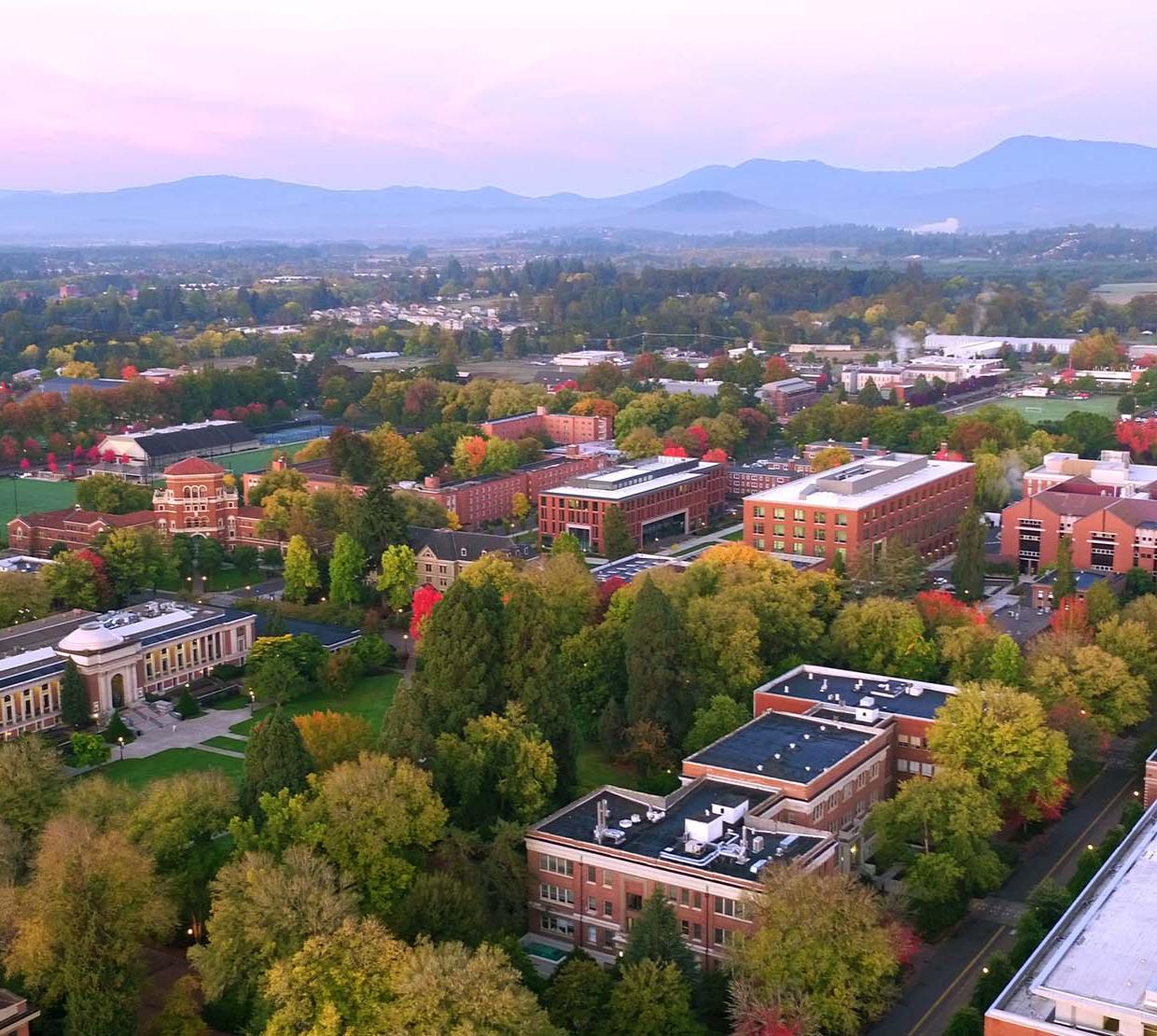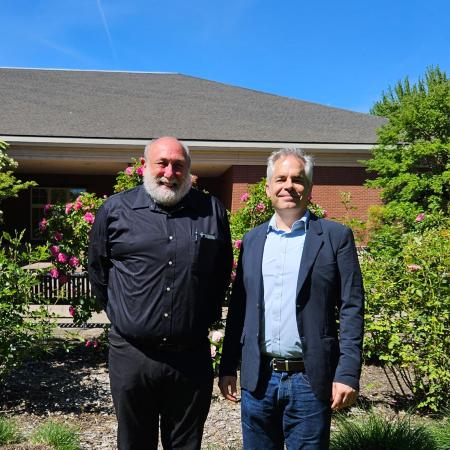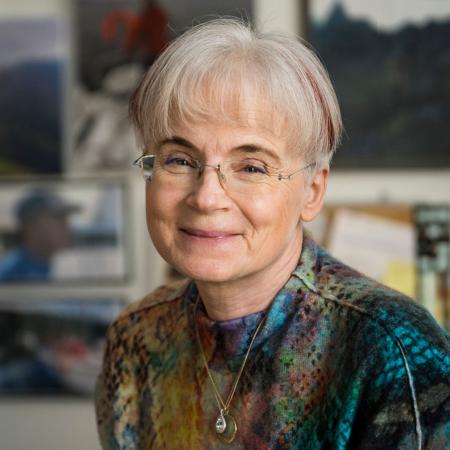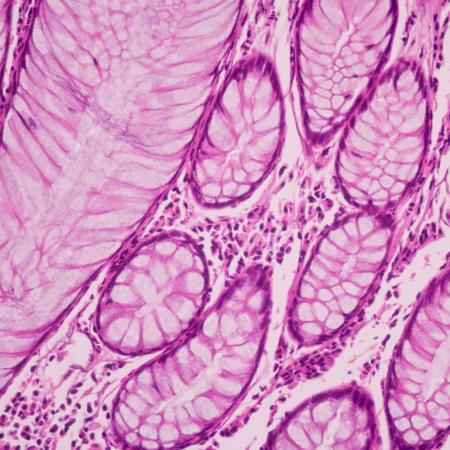The College of Science is excited to welcome eight new faculty members this fall. They bring diverse expertise in gravitational wave astronomy, applied topology, cancer treatment, age-dependent diseases and more. As researchers and teachers, they will help the College produce a high-quality science education that is equitable, accessible and inclusive of all learners while advancing scientific research and knowledge.
Biochemistry & Biophysics
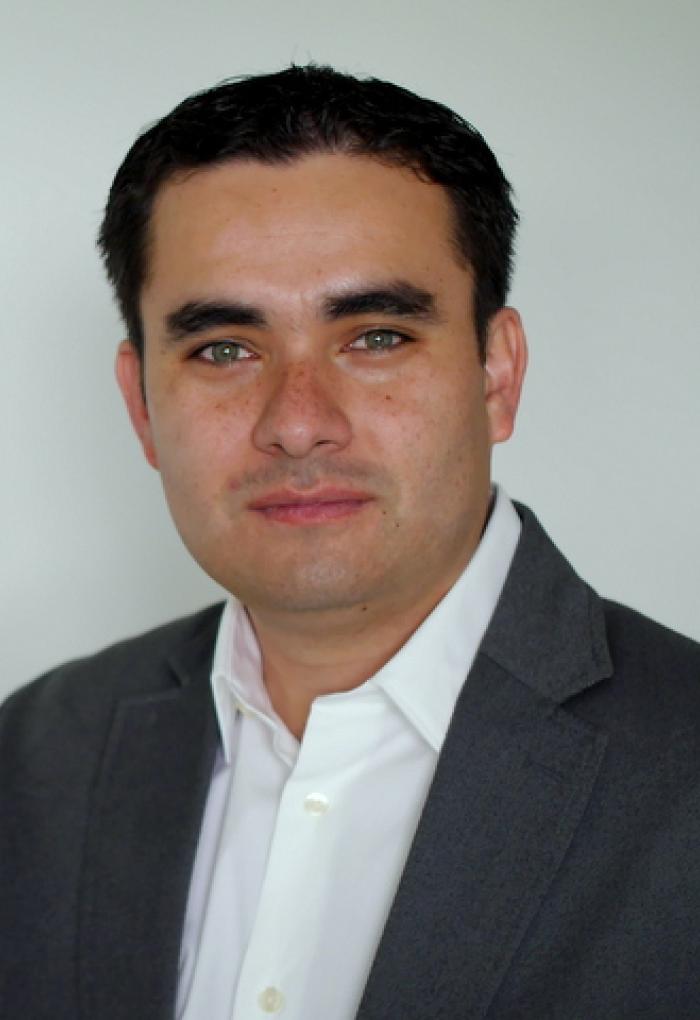
Juan Vanegas will be joining the College as an associate professor.
Originally from Colombia, Juan Vanegas received his bachelor’s and master’s degrees from Oregon State. After earning his Ph.D. in Biophysics from the University of California, Davis, Vanegas was a postdoctoral researcher at the Polytechnic University of Catalonia in Barcelona, Spain for two years before taking a second postdoctoral position at Sandia National Laboratories in Albuquerque, New Mexico. Since 2016, Vanegas has been at the University of Vermont as an assistant professor and then associate professor.
His research pivots around two fundamental questions at the interface between biology, physics, chemistry and engineering: What are the molecular mechanisms that transduce external forces during activation of mechanosensitive proteins, and what is the role of molecular structure in the elastic properties and mechanical response of cellular components such as lipid membranes.
Vanegas describes his teaching philosophy as somewhat non-traditional due to his experiences as a student and his highly interdisciplinary research interests. Some of his previous courses have included a “flipped classroom,” where after a mini-lecture students spent class time working on student led, hands-on computational exercises and programming tasks.
“This format allowed me to better understand common struggles that students encountered, and I was able to more readily help students when they needed guidance,” he said.
During his personal time, he enjoys being outside and woodworking. In fact, he built many of the pieces in his home.
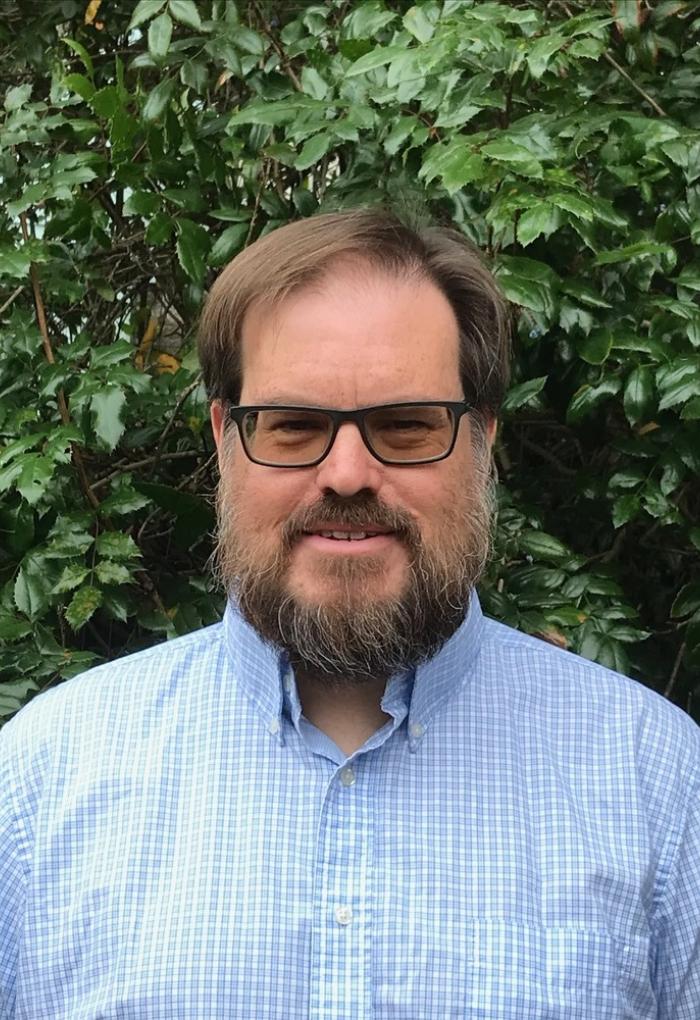
Nathan Mortimer will be joining the College as an associate professor.
Nathan Mortimer received his Ph.D. in Genetics and Molecular Biology from Emory University and completed his postdoctoral fellowship there as well. He has been an assistant professor at the University of Warwick in the UK and Illinois State University.
Mortimer is generally interested in understanding how the activities of individual proteins can influence biology at the cellular and organismal scales. His research is primarily focused on understanding cell signaling mechanisms, particularly in the context of immunity and disease.
“I am very excited to be joining the Department of Biochemistry and Biophysics and the College of Science,” he said. “It provides an invigorating research environment with a broad range of expertise and top-notch facilities.”
In the classroom, Mortimer focuses on helping students integrate new facts into a broader contextual framework and apply their learning to further knowledge through scholarly research. He achieves these goals by relating new material to previous knowledge and encouraging research experiences.
Mortimer is a project leader for Genomics Education Partnership, a nationwide collaboration that develops curriculum and research questions to enable course-based undergraduate research experiences at a variety of institutions. The project he leads is based on research in his lab and has been implemented at more than 20 colleges and universities.
Outside of work he enjoys spending time outside and going for walks and hikes with his dog Rosie. He is looking forward to exploring the natural world around Corvallis, a very different landscape from central Illinois.
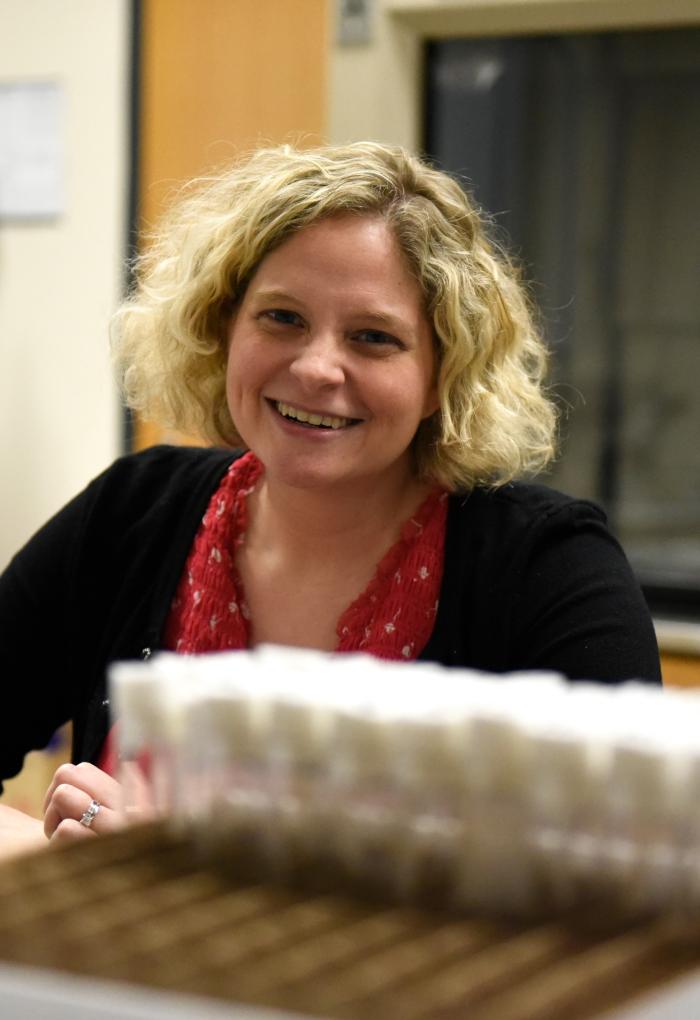
Alysia Mortimer will be joining the College as an associate professor.
Alysia Mortimer received her Ph.D. in Genetics and Molecular Biology from Emory University and completed her postdoctoral fellowship in aging and physiology there as well. She has been an assistant professor at the University of Denver and Illinois State University and an associate professor at Illinois State University.
Her research explores how and why humans age and the link between aging and age-dependent diseases such as Parkinson’s diseases, Charcot-Marie-Tooth Disease and muscular dystrophies.
In the classroom, she believes retention requires engagement. “I use an active learning approach in my classroom in which the students watch videos of the lectures at home and then in class we have discussions about the material and do a variety of hands-on activities to reinforce the concepts we discuss,” she said. “This approach also allows students to engage with the material in different formats that can accommodate a variety of preferred learning styles.”
In her free time, Mortimer is an artist, working with several different mediums such as acrylic painting, printmaking and textile arts such as knitting and crochet.
Chemistry
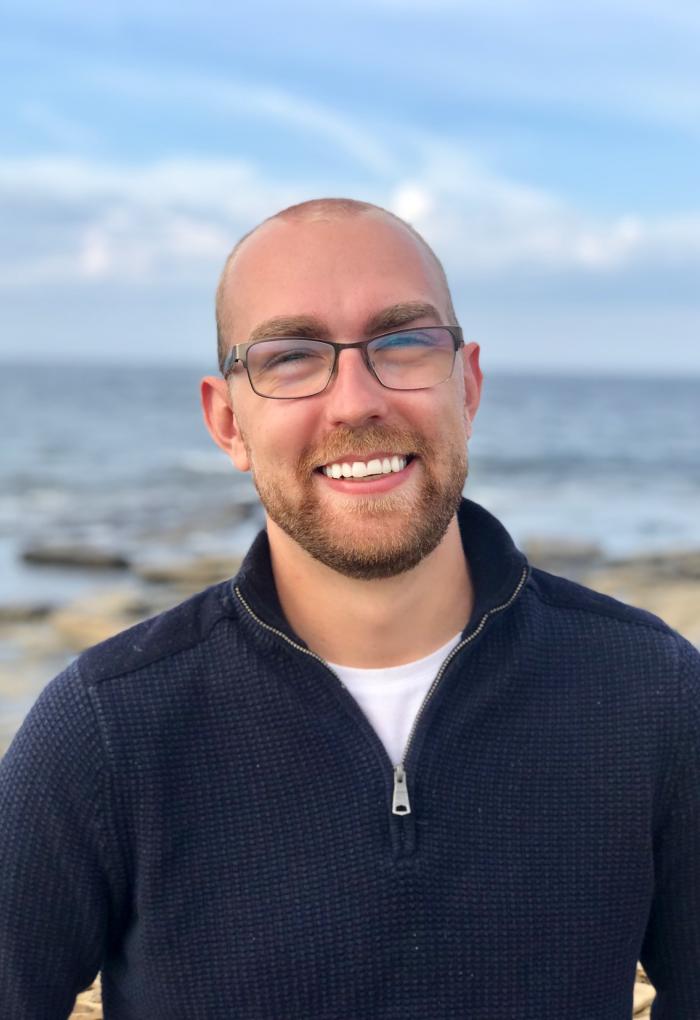
Addison Desnoyer will be joining the College as an assistant professor.
Addison Desnoyer is originally from central British Columbia, Canada. He received his Ph.D. in Chemistry from the University of British Columbia. He then completed two postdoctoral research fellowships at the University of Minnesota and at the Natural Sciences and Engineering Research Council at the University of California, Berkeley.
“The resources and facilities that OSU offers for researchers are excellent. OSU is the kind of place that gives students all the tools they need in order to be really successful in their research endeavors."
The central theme of his research is to discover new ways to make interesting and useful molecules through the study of the fundamental reactivity of organometallic compounds. In particular, his goal is to use a combination of biorenewable starting materials and earth-abundant (and much less toxic) metal catalysts. The work will result in new methods to prepare novel organic molecules, which will be applied towards the preparation of pharmaceuticals, new monomers for the synthesis of novel materials as well as alternate fuels.
“The resources and facilities that OSU offers for researchers are excellent. OSU is the kind of place that gives students all the tools they need in order to be really successful in their research endeavors,” Desnoyer said. “Another important reason why I joined OSU is that the values of the Department of Chemistry align very well with my own. The department is authentically striving to improve in regard to equity, diversity and inclusion initiatives, as well as delivering an exceptional undergraduate program with significant research opportunities.”
When he is not teaching or in the laboratory, Desnoyer and his wife love to garden and make bread.
Integrative Biology
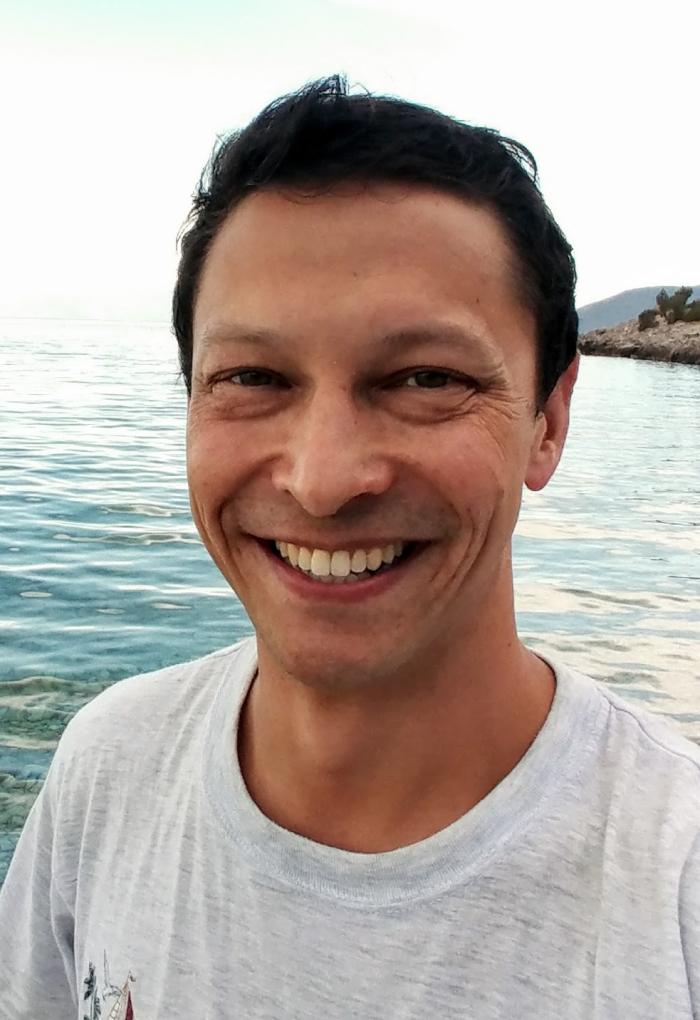
David Kikuchi will be joining the College as an assistant professor.
David Kikuchi is originally from Chicago and received his Ph.D. at the University of North Carolina at Chapel Hill. His thesis looked at the warning signals of coral snakes and their harmless mimics. Following graduation, he did postdoctoral research at Carleton University in Ottawa, Canada and the University of Arizona. Since 2019, Kikuchi has been a postdoctoral researcher in Berlin and Bielefeld, Germany, doing mostly theoretical work centered on the behaviors of predators and prey.
His research explores how animals make sense of the bewildering amount of information in their environments and the implications that their use of this information has for ecology and evolution. He also studies predator-prey systems and competition and cooperation between species.
“OSU has a world-class group of scientists in Integrative Biology and fantastic potential collaborations in other departments on campus,” he said. “I was furthermore impressed by the commitment that OSU has made to outstanding undergraduate education and redressing historical inequalities in academia, which are critical parts of my mission as a professor.”
In his free time, Kikuchi likes to cook and go mountain biking, rock climbing and running.
Mathematics
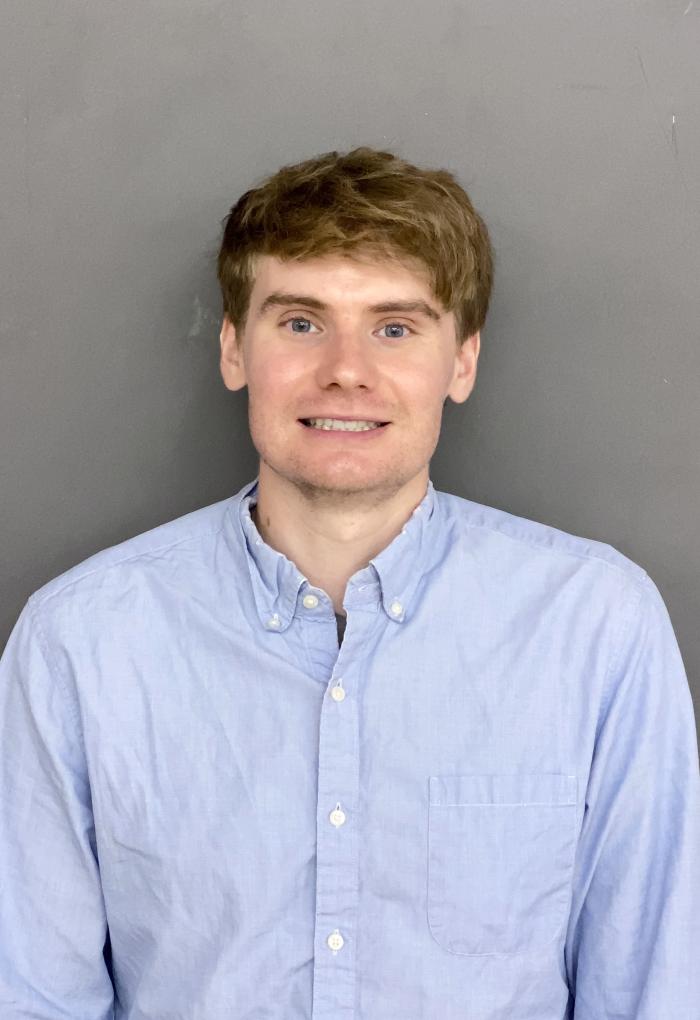
Nick Marshall will be joining the College as an assistant professor.
Nick Marshall completed his Ph.D. in Applied Mathematics at Yale in 2019 and received his undergraduate degree from Clarkson University. Before coming to Oregon State, Marshall was a National Science Foundation postdoctoral researcher at Princeton.
His research interests are focused on problems that involve interactions between analysis, geometry and probability, especially such problems motivated by applications to data science. Examples include problems involving spectral theory, group actions and invariance, data analysis and machine learning, and wavelet approximation theory.
“My teaching philosophy is based on inspiring students by sharing my excitement about the material,” Marshall said. “When teaching, my goal is to create an open environment where all students feel free to discuss ideas and voice questions.”
Aside from mathematics, Marshall enjoys a variety of outdoor activities including running, hiking, biking, skiing, rocking climbing and kayaking.
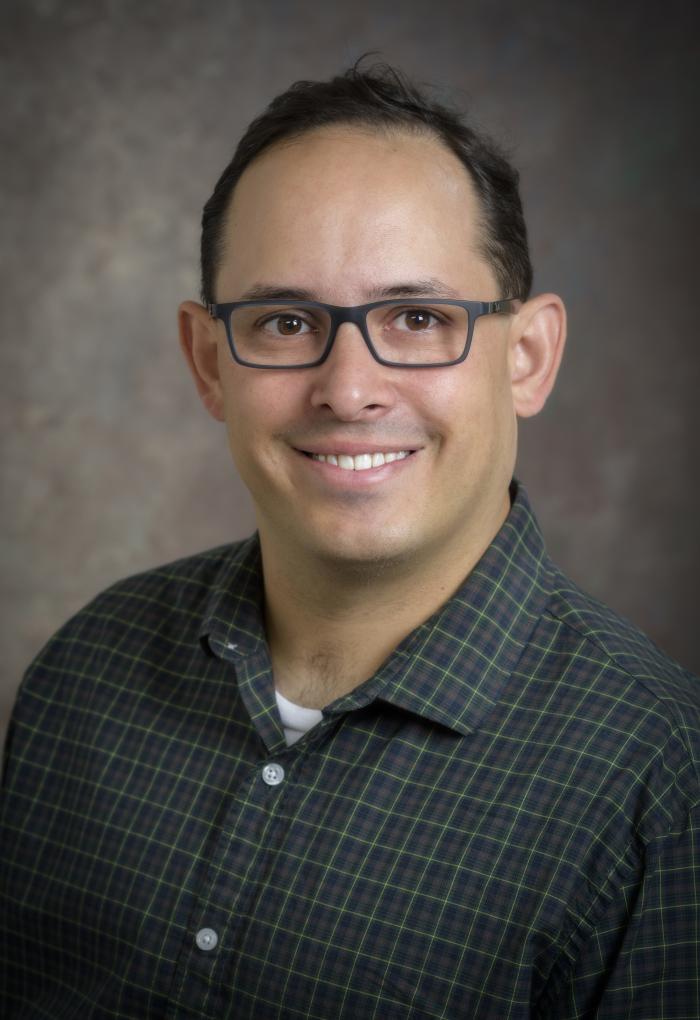
Chad Giusti will be joining the College as an assistant professor.
Chad Giusti earned his B.S. and Ph.D. in Mathematics from the University of Oregon, working in algebraic topology. In between his degrees, Giusti worked as a software engineer at Microsoft and Network Associates.
Afterward, he spent two years as a visiting assistant professor at Willamette University, during which time he was an MAA Project NeXT fellow. Giusti then moved to a postdoctoral researcher position at the University of Nebraska Lincoln. He then spent three years as a Warren Postdoctoral Fellow at the University of Pennsylvania, and subsequently took a faculty position at the University of Delaware, where he has been an assistant professor since fall of 2017.
His research focuses on applied topology, which utilizes recent ideas in geometry, topology and algebra to analyze nonlinear structure in high-dimensional data. From there, he develops mathematical and computational tools for the study of complex systems, which are primarily applied to neuroscience.
“There are a lot of great places to teach, to do research, or to do work that helps the community, but it's rare to find an environment that excels in and supports all of these endeavors,” Giusti said. “I have not spent a great deal of time on the OSU campus, but my interactions with the faculty and administration have uniformly shown me that our values are well-aligned across the breadth of our interests.”
Outside of the classroom he enjoys experimenting with new food and cuisines, playing board and video games with friends, listening to podcasts and spending time outdoors.
Physics
Jeff Hazboun is joining the College as an assistant professor.
Jeff Hazboun is excited to return to Corvallis. He earned his master’s from Oregon State University and then his Ph.D. in Physics from Utah State University. Hazboun had two postdoctoral positions, one at the University of Texas and the other at University of Washington Bothell, both working with the North American Nanohertz Observatory for Gravitational Waves (NANOGrav) Physics Frontier Center.
Oregon State is the lead institution for the center, which received a $17 million award from the National Science Foundation. Under the direction of Professor Xavier Siemens, NANOGrav includes more than 250 students and scientists at approximately 18 universities.
Hazboun is primarily interested in gravity and searching for ways to understand it using astrophysics observations. This includes searching for gravitational wave astronomy with pulsar timing arrays.
“I decided to come to OSU because I like the faculty of the physics department and am excited about the growing astrophysics group,” Hazboun said. “The university seems like a very supportive place to mentor the next generation of scientists.”
Outside of the classroom, he enjoys white water kayaking, playing the banjo and spending time in the mountains with his wife and daughters.
